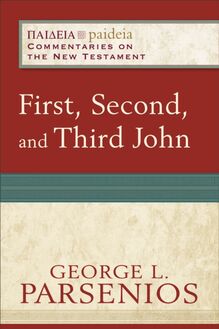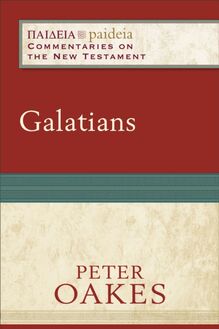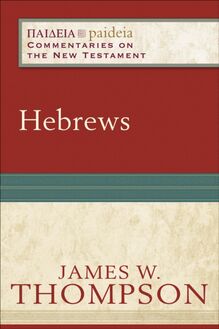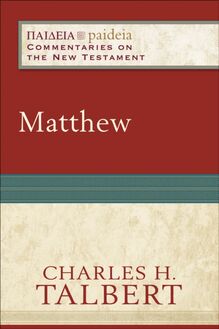Acts (Paideia: Commentaries on the New Testament) , livre ebook
371
pages
English
Ebooks
2008
Vous pourrez modifier la taille du texte de cet ouvrage
Obtenez un accès à la bibliothèque pour le consulter en ligne En savoir plus
Découvre YouScribe en t'inscrivant gratuitement
Découvre YouScribe en t'inscrivant gratuitement
371
pages
English
Ebooks
2008
Vous pourrez modifier la taille du texte de cet ouvrage
Obtenez un accès à la bibliothèque pour le consulter en ligne En savoir plus
Publié par
Date de parution
01 décembre 2008
Nombre de lectures
0
EAN13
9781585588213
Langue
English
Poids de l'ouvrage
2 Mo
Publié par
Date de parution
01 décembre 2008
Nombre de lectures
0
EAN13
9781585588213
Langue
English
Poids de l'ouvrage
2 Mo
Series Page
G ENERAL E DITORS
Mikeal C. Parsons, Charles H. Talbert, and Bruce W. Longenecker
A DVISORY B OARD
†Paul J. Achtemeier
Loveday Alexander
C. Clifton Black
Susan R. Garrett
Francis J. Moloney
© 2008 by Mikeal C. Parsons
Published by Baker Academic a division of Baker Publishing Group P.O. Box 6287, Grand Rapids, MI 49516-6287 www.bakeracademic.com
Ebook edition created 2013
Ebook corrections 04.27.2018, 11.24.2021
All rights reserved. No part of this publication may be reproduced, stored in a retrieval system, or transmitted in any form or by any means—for example, electronic, photocopy, recording—without the prior written permission of the publisher. The only exception is brief quotations in printed reviews.
Library of Congress Cataloging-in-Publication Data is on file at the Library of Congress, Washington, DC.
ISBN 978-1-5855-8821-3
Quotations from the book of Acts are from Martin M. Culy and Mikeal C. Parsons. Acts: A Handbook on the Greek Text , copyright © 1989 by Baylor University Press. Used by permission.
Other scripture quotations are from the New Revised Standard Version of the Bible, copyright © 1989 by the Division of Christian Education of the National Council of the Churches of Christ in the United States of America. Used by permission. All rights reserved.
Baker Publishing Group publications use paper produced from sustainable forestry practices and post-consumer waste whenever possible.
In memory of Cronje B. Earp and in honor of Dean M. Martin R. Alan Culpepper Charles H. Talbert
Contents
Cover
Series Page
Title Page
Copyright Page
Dedication
List of Figures
Foreword
Preface
Acknowledgments
Abbreviations
Introduction
Part 1. Acts 1–7 The Sense of a Beginning
Acts 1 The Beginning of the Church
Acts 2 The Miracle and Meaning of Pentecost
Acts 3:1–4:31 The Healing of a Lame Man
Acts 4:32–5:42 Tensions Within and Without
Acts 6–7 Stephen and the Seven
Part 2. Acts 8–12 Beyond Jerusalem: Philip, Saul, Peter , and Others
Acts 8 Philip: A Man on a Mission
Acts 9:1–31 Saul and Ananias: Conversion and Call
Acts 9:32–11:18 Peter: His Words and Deeds
Acts 11:19–12:25 Barnabas, Peter, and Herod
Part 3. Acts 13–19 Paul ’ s Mission to the Gentile World
Acts 13–14 Paul’s Initial Missionary Campaign
Acts 15:1–16:5 The Jerusalem Conference
Acts 16:6–17:15 Paul in Macedonia
Acts 17:16–18:17 Paul in Achaia
Acts 18:18–19:41 Paul in Ephesus
Part 4. Acts 20–28 Paul ’ s Farewell Journey
Acts 20:1–21:16 Paul’s Last Journey to Jerusalem
Acts 21:17–23:35 Paul in Jerusalem
Acts 24–26 Paul before Felix, Festus, and Agrippa
Acts 27–28 The Sea Voyage to Rome
Bibliography
Subject Index
Index of Modern Authors
Index of Scripture and Ancient Writings
Back Cover
List of Figures
1. Map of the Setting of Acts in the Roman World
2. Giotto di Bondone, Pentecost
3. The Healing of the Lame Man: Temporal Segmentation
4. The Healing of the Lame Man: Spatial Segmentation
5. Annibale Carracci, The Martyrdom of St . Stephen
6. Tommasso Masolino, St . Peter Raising Tabitha
7. Raphael, The Liberation of St . Peter from Prison
8. The Parthenon
9. Mars Hill
10. The Gallio Inscription
11. A Magical Text
12. What Would Luke Think ?
13. I’m Going to Say Something Now
Foreword
Paideia : Commentaries on the New Testament is a series that sets out to comment on the final form of the New Testament text in a way that pays due attention both to the cultural , literary , and theological settings in which the text took form and also to the interests of the contemporary readers to whom the commentaries are addressed. This series is aimed squarely at students — including MA students in religious and theological studies programs , seminarians , and upper - divisional undergraduates — who have theological interests in the biblical text. Thus the didactic aim of the series is to enable students to understand each book of the New Testament as a literary whole rooted in a particular ancient setting and related to its context within the New Testament.
The name “Paideia” reflects ( 1) the instructional aim of the series — giving contemporary students a basic grounding in academic New Testament studies by guiding their engagement with New Testament texts ; ( 2) the fact that the New Testament texts as literary unities are shaped by the educational categories and ideas ( rhetorical , narratological , etc .) of their ancient writers and readers; and ( 3) the pedagogical aims of the texts themselves — their central aim being not simply to impart information but to form the theological convictions and moral habits of their readers.
Each commentary deals with the text in terms of larger rhetorical units; these are not verse - by - verse commentaries. This series thus stands within the stream of recent commentaries that attend to the final form of the text. Such reader - centered literary approaches are inherently more accessible to liberal arts students without extensive linguistic and historical-critical preparation than older exegetical approaches , but within the reader-centered world the sanest practitioners have paid careful attention to the extratext of the original readers , including not only these readers’ knowledge of the geography , history , and other context elements reflected in the text but also to their ability to respond correctly to the literary and rhetorical conventions used in the text. Paideia commentaries pay deliberate attention to this extratextual repertoire in order to highlight the ways in which the text is designed to persuade and move its readers. Each rhetorical unit is explored from three angles : ( 1) introductory matters ; ( 2) tracing the train of thought or narrative or rhetorical flow; and ( 3 ) theological issues raised by the text that are of interest to the contemporary Christian. Thus the primary focus remains on the text and not its historical context or its interpretation in the secondary literature.
Our authors represent a variety of confessional points of view: Protestant , Roman Catholic , and Greek Orthodox. What they share , beyond being New Testament scholars of national and international repute , is a commitment to reading the biblical text as theological documents within their ancient contexts. Working within the broad parameters described here, each author brings his or her own considerable exegetical talents and deep theological commitments to the task of laying bare the interpretation of Scripture for the faith and practice of God’s people everywhere.
Mikeal C. Parsons Charles H. Talbert
Preface
Biblical commentaries belong to a genre distinctive to the study of scriptures, texts held to be sacred and authoritative for the faith and practice of religious communities. As such, they demand something from the interpreter that other genres of writing rarely require, namely, attention to each and every paragraph—if not to every word—of the text. Thus commentary writing, which attempts to follow the argument and logic of “another” and to present that argument as transparently as possible, demands a different kind of discipline than the academic monograph, whose writer attempts to present his or her own logic as lucidly and clearly as possible. Submitting myself to the discipline of this kind of analysis, that is, tracing the narrative logic of the ancient writer who produced the Acts of the Apostles, has been both rewarding and challenging. One is forced to comment on texts the meaning of which may not be readily apparent to the interpreter !
I have worked on Acts for more than twenty-five years, producing various articles and monographs, with a goal, eventually, of producing a full-length commentary. The actual writing of the commentary took place during the 2006–2007 academic year and was especially intense during the spring and summer of 2007, during which time I had a research leave. Taking up my post in a small cubicle in my university’s library, I spent eight or more hours each day engaging with and engaged by the narrative of Acts. My sustained experience with this portion of scripture has profoundly deepened my respect for the literary skills and theological vision of the author who produced it. That respect stands in contrast to the critical reception of Acts among those (perhaps many) who still view the Lukan corpus as the unwanted stepchild among the New Testament writings. That disregard was encapsulated for me in a throw-away comment by a colleague in the field, who, upon learning that I was writing a commentary on Acts, quipped: “You have the best story with the worst theology in the New Testament !” I must now register my strong disagreement with the latter part of this assessment; Luke’s literary skills in communicating his story are matched if not exceeded by the theological vision that undergirds that story. If this commentary in some small way makes that theological vision a bit more transparent to the modern reader, then it will have achieved my aspirations for it.
One feature of the commentary is the attention paid to the ways in which the Christian scriptures, in this case Acts, shape the theological reflection and moral habits of its Christian readers; hence the title of the commentary series, Paideia. I am glad also to confess that over time this moral vision has captured my own theological imagination, and I humbly count myself in the “company of St. Luke,” that is, among those who continue to be “schooled” in matters of Luke’s vision of the Christian Way. The discipline required in commentary writing thus has produced another kind of discipline, this one a kind of spiritual discipline that frankly came upon me in unexpected but welcome ways.
The format of the commentary does not allow me to register in each passage the deep debt I owe to those who have sought to comment on the Acts of the Apostles from beginning to end. I have learned so much ab









